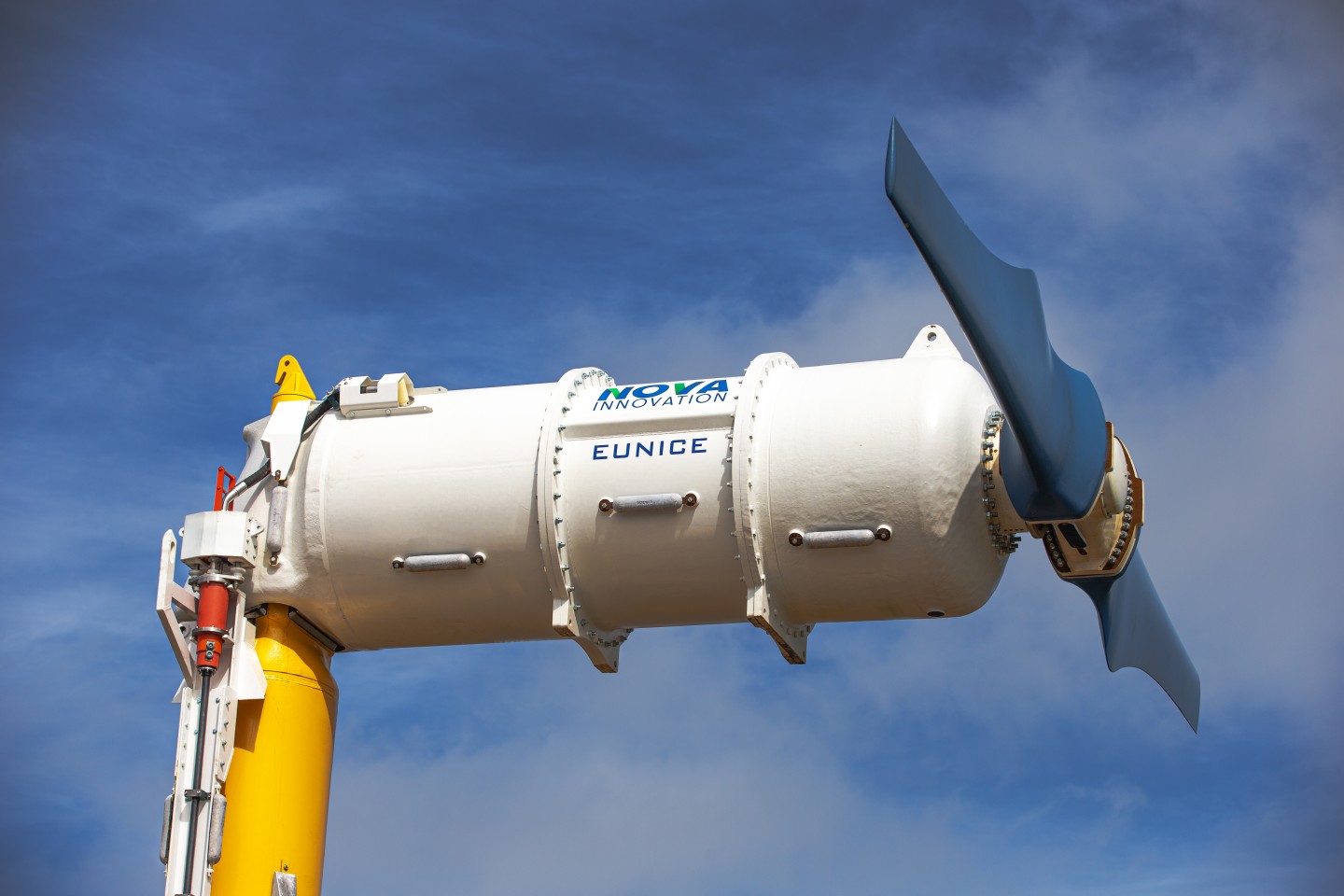Nova Innovation has announced the installation of the first electric vehicle charge point powered by tidal energy, which is located on the island of Yell in the Shetlands.
The evolt charge point has been installed at Cullivoe harbor by the shores of Bluemull Sound, a strait between the northern Shetland islands of Unst and Yell. It’s being operated by ChargePlace Scotland, the national EV charging network owned and operated by the Scottish Government.
“Tidal turbines in the Shetland Tidal Array supply the energy that is converted into electricity for the charge point,” the company told New Atlas. “Each 100-kW turbine could provide enough electricity to charge two 50-kWh battery Teslas in an hour.”
Nova Innovation’s tidal turbines have been providing Shetland homes and businesses with electricity for more than five years. The first 30-kW turbine installed in Bluemull Sound became operational in April 2014. This was decommissioned two years later and replaced by a 100-kW tidal turbine, which was connected to the local grid in August 2016.

Nova Innovation
There are now four 100-kW turbines in the Shetland Tidal Array, with the energy harvested routed to onshore Tesla battery banks. The ebb and flow of the tide in the area has been found to repeat every six hours, with a short gap inbetween as the tide turns and changes direction. Storage during peak generation and export during slack periods allows for constant baseload delivery to the local grid.
Nova Innovation plans to add another two in the coming years, and says that once the six-turbines are up and running, they could then facilitate up to 30,000 EV charges per year.
The installation of the Cullivoe EV charge point was funded by Transport Scotland as part of a clean energy transition program, which has also seen the Scottish Government announcing that the sale of new cars powered solely by petrol or diesel combustion engines will end by 2032.
“It’s fantastic to see that Nova Innovation is demonstrating yet again that Scotland remains at the forefront of developments in zero-emission transport solutions,” said Michael Matheson, Cabinet Secretary for Transport, Infrastructure and Connectivity. “I’m pleased that Scottish Government funding is enabling the installation of a new charge point in Shetland which operates entirely on renewable tidal energy. This type of innovation is key in responding to the global climate emergency and highlights the opportunities that can be realized here in Scotland as we transition to a net-zero economy.”
The video below has more.
Nova Innovation reveals a new EV charge point in Shetland – powered by the tide.
Source: Nova Innovation
Source of Article